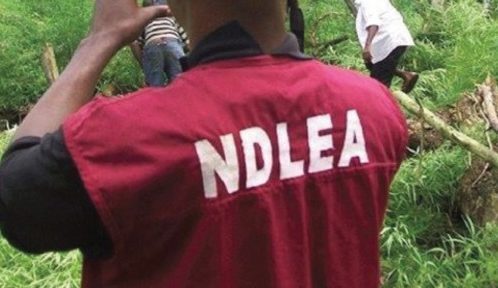Dr James Moses, an official of International Committee of the Red Cross (ICRC), Nigeria Delegation, says the organisation targets to deworm 140, 000 livestock in three local governments of Nasarawa State.
Moses, the Livestock Field Officer for ICRC Jos Sub Delegation, disclosed this in an interview at the on-going deworming for livestock at Loko District of Nasawara Local Government Area of the state.
The official said the organisation would deworm 100,000 cattle and 40,000 goats and sheep in Awe, Keana Local Government Areas as well as Loko district of Nasawara Local Government.
“These livestock belong to pastoralist communities affected by violence in the state.
“So far in Loko district, we have covered more than 20,000 livestock, in Awe, we have covered over 40,000 livestock and we are starting in Keana Local Government this week.
“We started this exercise on Nov. 28 and we hope to finish on Dec.19,’’ he said.
He said the objective of the exercise was to protect the livelihood of the herders by achieving good health for livestock through administering of Albendazole drug to treat worms and flu.
According to him, the worms if not treated can bring decrease in productivity and wellbeing of the livestock, so by deworming them, we hope to achieve good health for them.
Moses said as part of the mandate of neutrality and partiality of ICRC, the organisation had supported farmers in Benue and needed to support Pastoralists in Nasarawa.
He said the organisation had assisted farmers with agro support and we have also given them cash to procure agro support, In Nasawara, we are not targeting the farmers but in Benue, in Agatu side, we have supported them,
“As a result of communal violence, most of the pastoralists were displaced, migrated and spread along riverline of Loko, we have the resident pastoralists and those displaced from the other side.
“During our assessment, we discovered that there were new diseases along the area which actually gave us framework to start this activity,’’ the official.
Moses said the initial challenge was acceptance from the pastoralists as it would be the first time they would be hearing about deworming for their livestock.
“When they started hearing result from the first set of pastoralists that we dewormed their livestock and how the drug had helped their livestock, the acceptance has increased,’’ he said.
According to him, the pastoralists are demanding for more of the livestock to be dewormed.
He said the organisation would carry out vaccination on the dewormed livestock by 2020 to protect them from other deadly diseases.
Also read: Yuletide: AFAN assures Nigerians of availability, affordable poultry products, livestock
Moses also said ICRC had trained 10 community animal health workers from the areas to serve as First Aiders to the livestock and they have their supervisor connected to the Ministry of Agriculture.
The official said the workers were trained in April at the National Veterinary Research Institute (NVRI), Vom and were supported by ICRC with Starter Kits which they would be using in the communities.
One of the trained Community Health Animal Workers, Yusuf Chindo, assisting in the exercise said the process of deworming started by sensitising the pastoralists on the benefits of deworming the livestock.
Chindo, a beneficiary of training at NVRI and ICRC’s Livestock Emergency Guidelines and Standards (LEGS) said the deworming had improved the health of the animals.
“In fact, they didn’t know about it before. They are happy and cooperating now that the campaign has started.
“We have received testimonies that they have seen diseases coming out of their animals, they see worms physically from the faeces,’’ he said.
ICRC has been working in Nigeria for more than 30 years, operating in 20 states to alleviate the suffering of people affected by conflicts and violence.


















